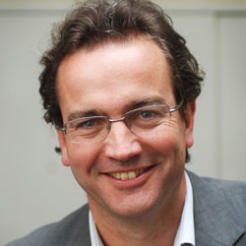Creating the Big Society will take ten to 20 years and will require a "massive, seismic culture change" within government and the country, minister for civil society Nick Hurd said yesterday.
As the star attraction at a roundtable event organised by the Directory of Social Change, Hurd listened to several leaders of local charities unload their frustrations about the barriers that prevent their organisations from achieving more.
Most complaints centred on commissioning and procurement processes but concerns were also raised about the lack of a level playing field with the private sector, the lack of attention paid to the "ultra-marginalised" and the difficulty of getting corporates to provide the right sort of support.
Localism agenda doesn't match reality
Lewis Herlitz, development officer at the Employment and Training Consortium, told the minister that the rhetoric of the government's localism agenda does not begin to match the reality on the ground, where government policy and procedures continue to deliver a top-down approach to local service delivery.
Herlitz said: "Somewhere at the heart of government, or at the heart of the civil service, there is an entrenched fear of really leading through the voluntary sector in terms of service delivery. We are still somehow not quite at the heart of it.
"For some reason the sector does not get listened to and I struggle to understand why some sorts of organisations do get listened to and others don't."
Herlitz said it had been "a given" for years that civil society organisations run high-quality services cost-effectively, yet they are constantly required by funders to prove their worth. On the Work Programme, for instance, "the one sector that has always been run on a lean and mean basis has been completely sidelined by the procurement model".
"It's a cultural issue, or a fear issue," Herlitz said. "There is something about the relationship between us and government that doesn't really work. But I've yet to understand what it is."
Big Society
Hurd responded with assurances that the government was taking steps to change things, but that it would take time.
"Your fundamental point is, are we listening enough to the grassroots community, as a government and as a country? Of course we're not. But that is what lies at the heart of the Big Society vision. We accept that government has too much power and has got too arrogant in terms of its attitude to the grassroots. That is what we are trying to address through the localism and Big Society agenda."
Hurd also reminded those assembled that the the sector has never had such a high profile within government and in public policy, before adding: "Of course rhetoric and expectation will run ahead of reality, that is what always happens when you are trying to drive change. We are talking about massive, seismic cultural change here, it's not going to happen overnight.
"This is a ten to 20-year project, as far as I can see, and there is of course going to be a massive disconnect at this time. It's deeply frustrating to hear ministerial statements about what we want to happen and trying to match that with your experience on the ground."
Commissioning a "big challenge"
He also pointed out that large parts of the public sector did not share the voluntary sector's confidence in its ability to deliver the best public services, and so commissioning needed to change. "The quality of commissioning is not good enough across the system, even when you have good intelligent commissioners the environment in which they work is really resistant to change."
Hurd said the previous government had already instigated a programme to train commissioners to better understand what the sector could bring to the table but little appeared to have improved. He said he understood the points people had made about the ridiculous volumes of red tape involved in tendering, admitting: "It is a symptom of a system of buying that lacks confidence." To that end, Hurd and his boss Francis Maude are "taking a bit of time to think through how we can improve it. Again, it is a massive challenge."
He said he completely understood the frustrations expressed by the sector, but "I would rather we are having this debate and being on this journey than where we were before".








